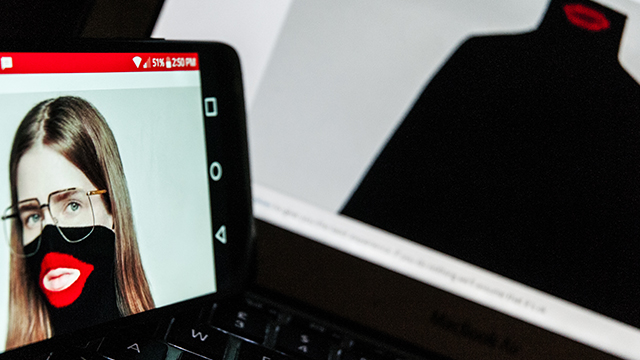
Well, the chief called Gucci this week and said, “This ain’t it,” after the fashion brand released a wool balaclava sweater that many felt resembled blackface. The extra long black turtleneck, which comes up to the midpoint of the wearer’s face, just past the nose, features an overexaggerated red mouth (with a hole in the middle for the wearer’s actual mouth). On social media, people pointed out that the sweater looks very similar to the way white performers offensively painted their faces in minstrel shows to play black characters.
So @gucci puts out a sweater that looks like blackface……
On Black History Month….
And then issues an apology because they didn't know that blackface images are racist.🤦🏿♂️ pic.twitter.com/G3HjPTIuuQ
— Tariq Nasheed 🇺🇸 (@tariqnasheed) February 7, 2019
We’ve previously discussed how aspects of black culture can be so appealing to the masses that they want to emulate them (and sometimes go too far). But recently, smack dab in the middle of Black History Month, people admitting to dressing up in blackface, in a former life or otherwise, seems to be (dishearteningly) in style.
Virginia’s Governor Ralph Northam — who still refuses to step down — had photos surface of him in medical school wearing blackface (next to a friend in a KKK costume), and also admitted to “darkening his skin” to dress as Michael Jackson the same year. Not to be outdone, Virginia Attorney General Mark Herring admitted to wearing blackface to dress like Kurtis Blow for a college party in the ’80s. Joy Behar of The View even joined in, commenting that she had once used makeup that was “a little darker than her skin” to dress as a “beautiful black woman” in her late 20s. And to top off the Black History Month fouls, everyone had to sit through Liam Neeson’s WTF of a statement about desiring to commit a racially charged crime. Lovely February we’re having, no?
Racist fashion faux pas from foreign designers (like H&M’s “coolest monkey in the jungle” or Prada’s window display) are becoming a little too common to use the excuse that they didn’t know about America’s racist history or that they were unaware of the painful implications of blackface imagery. And so while everyone has been apologetic (Gucci, in particular, issued a statement about valuing diversity and pulled the sweater from stores and online), it’s becoming increasingly a less credible defense.
https://twitter.com/gucci/status/1093345744080306176/photo/1
And as one Twitter user pointed out perhaps if they actually valued diversity they could, “hire more Black people and cultivate an environment where people on all levels of the company feel comfortable to speak up,” in order to avoid incidents like this in the future. Just an idea.
If you hire more Black people and cultivate an environment where people on all levels of the company feel comfortable to speak up incidents like this will be avoided.
— Vanessa Veasley (@VanessaVeasley) February 7, 2019
